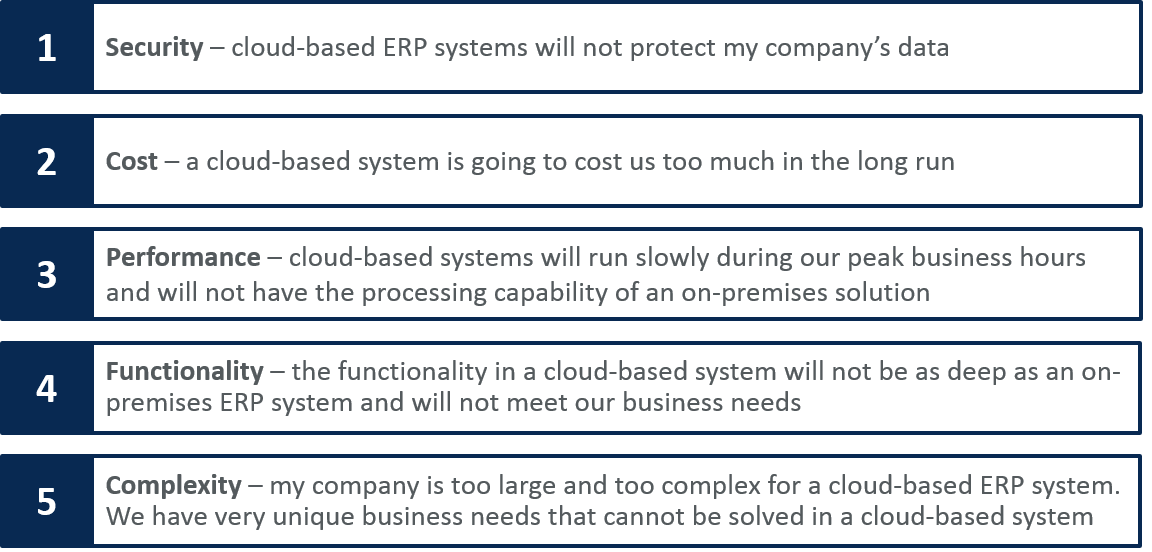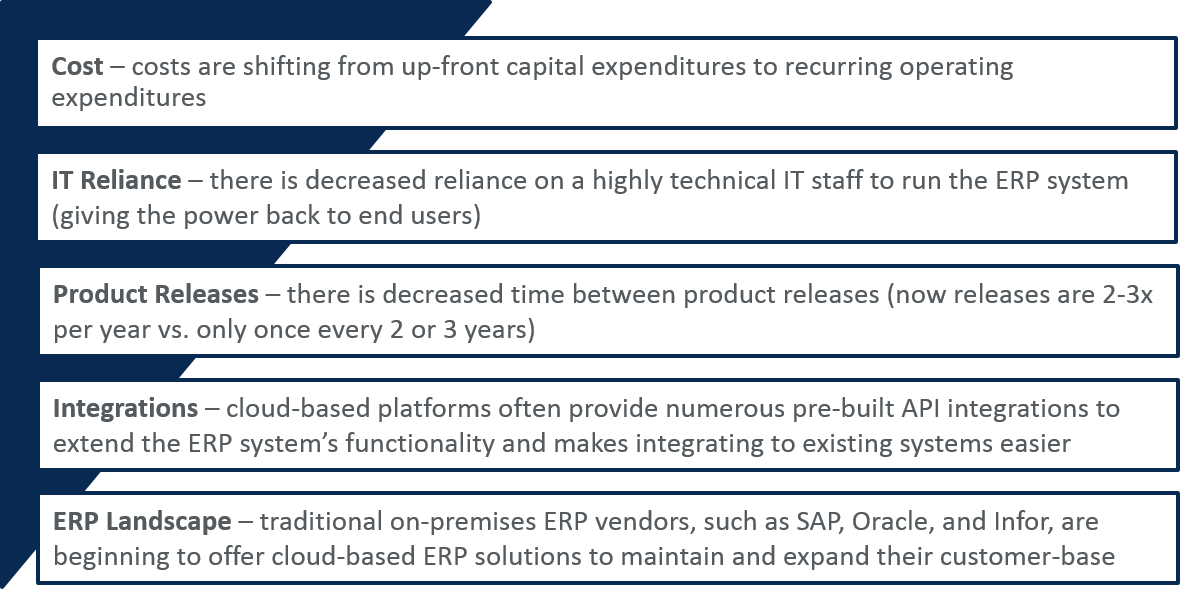
April 19, 2016 | InBrief
Demystifying the cloud: benefits of a cloud-based ERP system
Demystifying the cloud: benefits of a cloud-based ERP system
In late March 2016, the first annual Manufacturing Cloud Summit was held at the McCormick Place in Chicago, IL. The conference focused on cloud-based Enterprise Resource Planning (ERP) systems, addressing topics about common myths, ongoing trends, and key benefits of a robust cloud-based ERP ecosystem. The days of green screen, legacy ERP systems are long gone. As we have seen with the largest ERP vendors, significant investments are being made to transition product-base from on-premises to cloud-based ERP systems. In this blog, we will provide some insight into this shift.
Myths
There are several misconceptions about cloud ERP systems including:
In reality these myths are often incorrect and are discussed in the following two sections where we highlight the trends and benefits of a cloud-based ERP system.
Trends
Several trends exist as cloud-based ERP platforms continue to gain traction and expand across the ERP market including:
Benefits
Now that we have addressed the myths and talked about a few trends with cloud-based ERP systems, we will overview several key benefits that stem from a cloud-based ERP systems:
- Scalability – adding or removing licenses is now as easy as making a quick call to your sales rep. If your organization makes an acquisition, divests a business unit, or creates a new location, a cloud-based ERP system can easily scale up or down to match the change in users
- Flexibility – if you do not like the name of a data field, need a new report, or want to add a custom field to assist with measuring a KPI, then you can make the change yourself. In the cloud, system developers are no longer needed to support basic configuration updates, enabling faster deployment of desired changes
- Automatic Feature Enhancements – cloud-based ERP vendors deploy product updates multiple times per year, which provides customers with free access to enhanced or new features. You no longer run the risk of falling multiple versions behind. Some vendors even provide a platform that allows customers to vote for desired enhancements like NetSuite’s SuiteIdeas
- Global Access – anywhere you have a working internet connection, you can access your ERP system (no more need to lug your work laptop on vacation to the Caribbean). Most cloud-based ERP vendors also offer some form of mobile access
- Security – to reduce the security risk associated browser-based access, cloud-based ERP vendors also offer additional layers of control such as two-factor authentication and IP address restrictions. Additionally, ERP vendors invest a significant amount of money in other security measures such as penetration testing, redundant data center backups, and system maintenance (~99% uptime is typically guaranteed)
- Usability – the green screen ERP system is dead. Today’s cloud-based ERP systems offer user interfaces similar to Facebook and Twitter. Some of these modern features include browser-based access, intuitive navigation, customizable dashboards, drill-down and drill-up capabilities, and data in context (order history and related upsell products on the customer record for example). You also no longer have to worry about whether or not your ERP system supports Mac computers
- Crowd-sourcing – every customer is now on the same core platform. This commonality, along with customers being granted developer access, allows for users to share solutions or workarounds to issues and develop custom processes on the platform. Third party developers can also create add-on applications to create a seamless end user experience
Hopefully the “fog has been lifted” about cloud-based ERP solutions and this rapidly changing landscape. Should you have any additional questions or would like to discuss the benefits of cloud-based ERP systems, please contact us.
